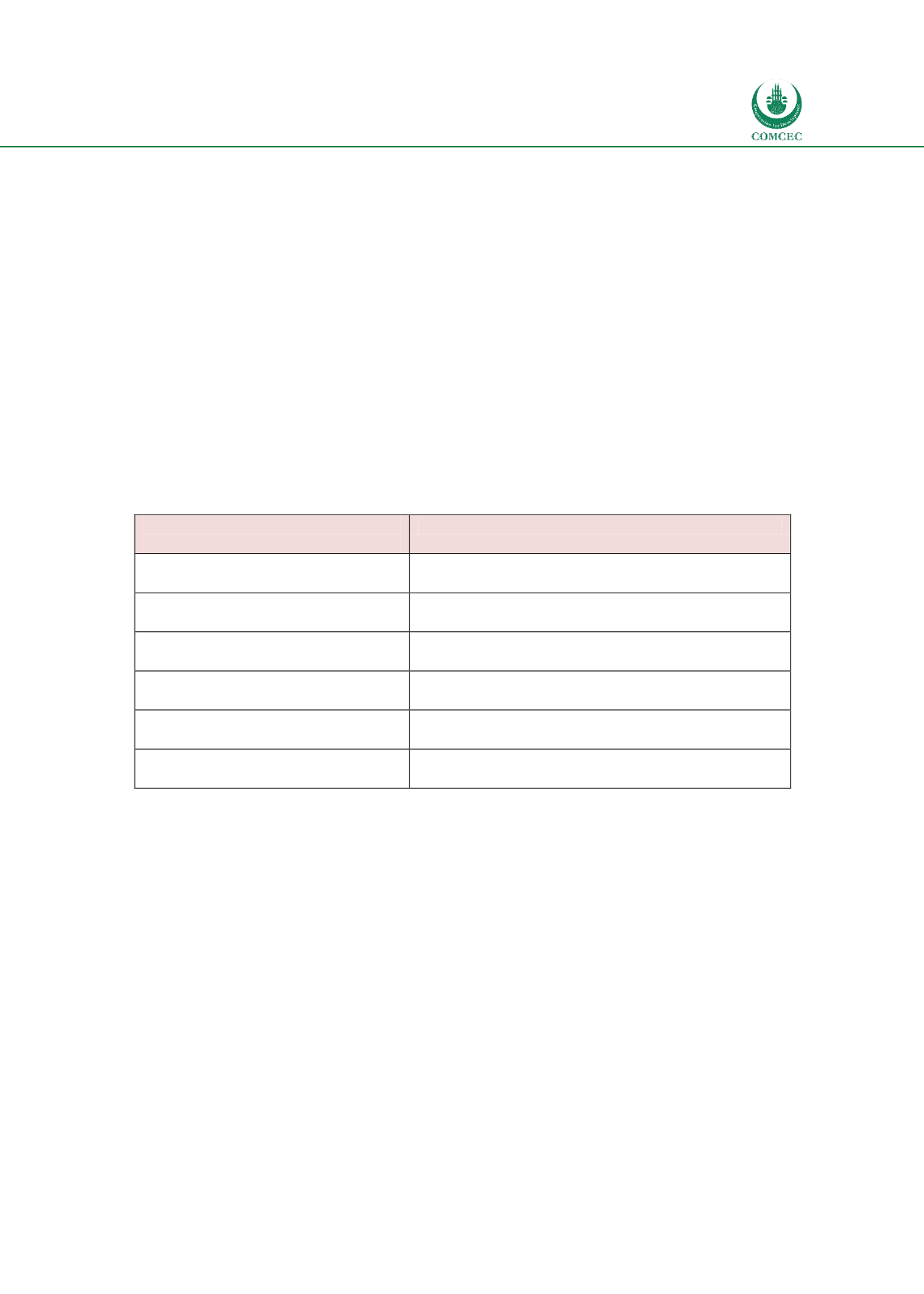

National and Global Islamic Financial Architecture:
Prolems and Possible Solutions for the OIC Member Countries
197
compliance. Five countries (Egypt, Saudi Arabia, Senegal, Turkey and UAE) do not have any
elements of the information infrastructure for Islamic financial sector.
6.1.6.
Consumer Protection & Financial Literacy
Consumer protection and financial literacy have become important aspects of regulatory
framework after the GFC. Deposit insurance is also an important aspect of protecting
depositors when banks are in distress. Some specific issues arise in the Islamic financial sector
for all these aspects.
The case studies show that while the consumer protection framework exists in most of the
countries, only four countries (Malaysia, Oman, Pakistan and Sudan) deal with specific issues
related to consumers of the Islamic financial sector. Similarly, only four countries have Shariah
compliant deposit insurance schemes to protect consumers of Islamic banks (Malaysia, Nigeria,
Oman and Sudan). The majority of countries in the sample (Bangladesh, Malaysia, Nigeria,
Oman, Pakistan, Sudan and Turkey) have some financial literacy programs that cover material
related to Islamic finance.
Table
6.9: Status of Consumer Protection and Financial Literacy
Consumer Protection & Financial
Literacy
Countries
Specific
Consumer
Protection
Policies for Islamic finance
Malaysia, Oman, Pakistan, Sudan
Specific
Deposit
Insurance
Scheme for Islamic banks
Malaysia, Nigeria, Oman, Sudan
Specific
financial
literacy
programs for Islamic finance
Bangladesh, Malaysia, Nigeria, Oman, Pakistan,
Sudan, Turkey
Common Consumer Protection
Policies
Bangladesh, Egypt, Indonesia, Nigeria, Saudi Arabia,
Senegal, Turkey
Common
Deposit
Insurance
Scheme
Bangladesh, Indonesia, Pakistan, Saudi Arabia,
Turkey, UAE
Common
Financial
Literacy
programs
Egypt, Indonesia, Saudi Arabia,
6.1.7.
Human Capital and Knowledge Development
Most of the case-studies countries show that there have been initiatives to provide education
and training in Islamic banking and finance at different levels. While in some countries the
public bodies such as Banking Institutes operating under the central banks offer courses in
Islamic finance, in most countries educational institutions have come forward with
development programs related to the discipline. In some other countries, there are also some
initiatives at the private sector and NGO levels to enhance the knowledge and skills for the
industry.
The organizations involved in providing teaching and promoting research include centers,
associations and training institutes.
















